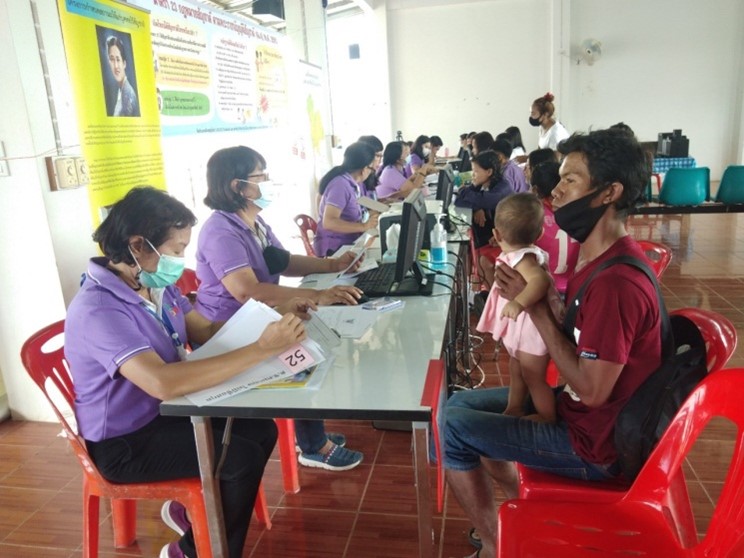 Thailand is home to around 570,000 refugees and stateless persons. These populations were in a legal limbo until 2008 when the Civil Registration Act was reformed and the Thai civil registration system aligned with international standards, most notably the Convention on the Rights of the Child, by extending birth registration to all births in Thailand. The reform made it possible to retroactively register births that occurred before 2008.
Thailand is home to around 570,000 refugees and stateless persons. These populations were in a legal limbo until 2008 when the Civil Registration Act was reformed and the Thai civil registration system aligned with international standards, most notably the Convention on the Rights of the Child, by extending birth registration to all births in Thailand. The reform made it possible to retroactively register births that occurred before 2008.
Registering births of all children is the first step towards solving statelessness. Although some children cannot apply for Thai nationality, birth registration still provides them with a proof of legal identity and is key in the protection of their rights. The Bureau of Registration Administration set up a specific identification number format for non-Thai citizens in parallel to the citizen identification number.
These reforms were necessary to create an inclusive framework, but they are not sufficient to make sure that everyone registers vital events. Indeed, many barriers can remain, especially for people living in remote areas, far from registration offices, who do not speak Thai. Hilltribes and other groups may have limited interactions with the Government, and there may be mistrust or misunderstandings, such as mistaking a birth notification given by a health facility for a birth certificate. Local registrars may be unaware that these populations should be registered. Other groups, such as migrant workers, may face the same barriers.
The Government collaborated with several United Nations agencies, in particular with UNHCR, to improve birth registration. Improvements include the development of an online registration programme that connects hospitals and district registration offices, capacity-building for local civil registration officials, and awareness initiatives, including establishing community networks and launching a dedicated Government website on nationality matters. In hospitals at the border with Myanmar where there are many births to non-Thai nationals, the Bureau of Registration Administration, the Ministry of Public Health, the International Organization for Migration and civil society organizations work together to provide legal advice and translation to make sure families are informed of their rights. Collaboration with the Ministry of Education has also allowed the retroactive integration of non-Thai nationals in the national civil registration system.
The project provided nationality or residency status to more than 14,000 people in 2020, surpassing the objectives that had been set. For 2021, even more ambitious targets were set, supporting the realization of rights for these populations while also providing authorities with essential information on populations that had been invisible. Going forward, Thai authorities will need to continue their efforts to include marginalized groups in civil registration to achieve the ambitious pledge taken in 2016 as part of UNHCR’s “IBelong” campaign to end statelessness in the country by 2024.
